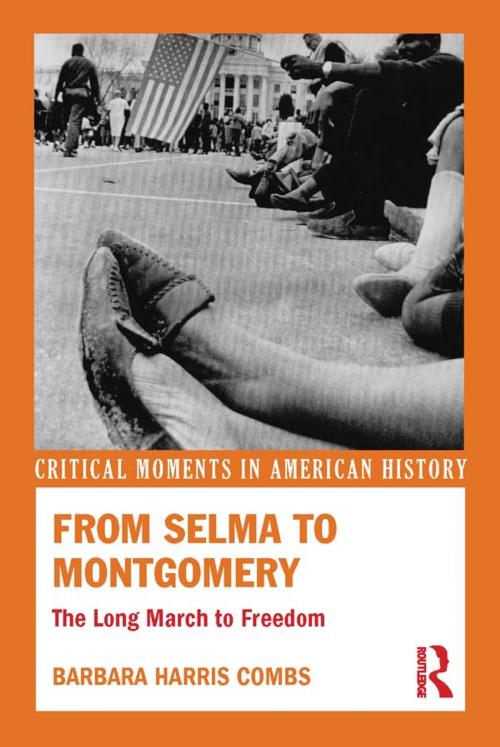From Selma to Montgomery
The Long March to Freedom
Nonfiction, History, Americas, United States, 20th Century| Author: | Barbara Harris Combs | ISBN: | 9781136173752 |
| Publisher: | Taylor and Francis | Publication: | November 26, 2013 |
| Imprint: | Routledge | Language: | English |
| Author: | Barbara Harris Combs |
| ISBN: | 9781136173752 |
| Publisher: | Taylor and Francis |
| Publication: | November 26, 2013 |
| Imprint: | Routledge |
| Language: | English |
On March 7, 1965, a peaceful voting rights demonstration in Selma, Alabama, was met with an unprovoked attack of shocking violence that riveted the attention of the nation. In the days and weeks following "Bloody Sunday," the demonstrators would not be deterred, and thousands of others joined their cause, culminating in the successful march from Selma to Montgomery. The protest marches led directly to the passage of the Voting Rights Act of 1965, a major piece of legislation, which, ninety-five years after the passage of the Fifteenth Amendment, made the practice of the right to vote available to all Americans, irrespective of race. From Selma to Montgomery chronicles the marches, placing them in the context of the long Civil Rights Movement, and considers the legacy of the Act, drawing parallels with contemporary issues of enfranchisement.
In five concise chapters bolstered by primary documents including civil rights legislation, speeches, and news coverage, Combs introduces the Civil Rights Movement to undergraduates through the courageous actions of the freedom marchers.
On March 7, 1965, a peaceful voting rights demonstration in Selma, Alabama, was met with an unprovoked attack of shocking violence that riveted the attention of the nation. In the days and weeks following "Bloody Sunday," the demonstrators would not be deterred, and thousands of others joined their cause, culminating in the successful march from Selma to Montgomery. The protest marches led directly to the passage of the Voting Rights Act of 1965, a major piece of legislation, which, ninety-five years after the passage of the Fifteenth Amendment, made the practice of the right to vote available to all Americans, irrespective of race. From Selma to Montgomery chronicles the marches, placing them in the context of the long Civil Rights Movement, and considers the legacy of the Act, drawing parallels with contemporary issues of enfranchisement.
In five concise chapters bolstered by primary documents including civil rights legislation, speeches, and news coverage, Combs introduces the Civil Rights Movement to undergraduates through the courageous actions of the freedom marchers.















